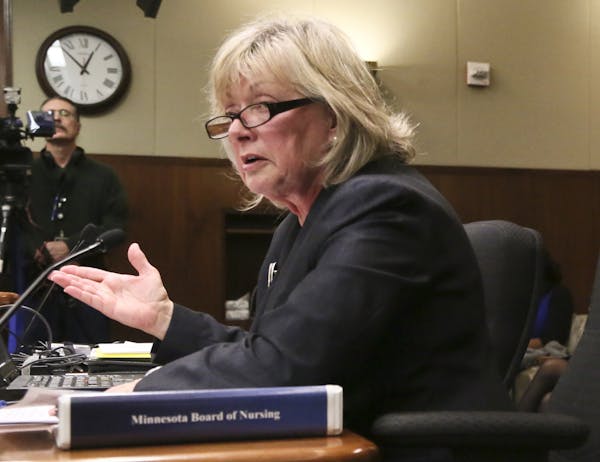Licensed health care professionals in Minnesota whose behavior presents an imminent risk of harm to their patients could be automatically suspended under a bill passed Tuesday night by a Minnesota House committee.
The determination of risk would need to be made by a licensing board or a Health department commissioner, which would have 60 days to investigate and hold a hearing with the health care provider after a suspension.
That was one of several proposals included in a bill that was prompted by a series of Star Tribune investigations last fall that found nurses have continued to practice despite criminal histories, including getting caught stealing drugs on the job and harming patients.
The House proposal, sponsored by Rep. Tina Liebling, DFL-Rochester, would also revoke the licenses of nearly all health care providers convicted of most types of sex crimes. It would require a 10-year waiting period following a sex offender's release from incarceration before that person could get a license to practice.
While a Senate version of the bill presented last week was heavily criticized by other licensing boards and the Minnesota Nurses Assocation, the MNA endorsed the House version. In a statement, the MNA, the state's largest nursing union, said the House version of the bill "offers the necessary policies for strengthening patient safety and addressing chemical dependency as a chronic, manageable disease."
A previous version of the House bill mirrored the Senate version, which required an automatic suspension if a health care professional was kicked out of a state-run drug monitoring program. The updated version presented Tuesday allowed the boards to suspend if the professional was discharged and the board believed the person "presents an imminent risk of harm."
Liebling said she hopes to fix a gap in the system that allows a health professional to be discharged from the program but still be allowed to practice before a licensing board can investigate.
"That gap presents a really unacceptable risk to the public," she said.
Brandon Stahl • 612-673-4626
